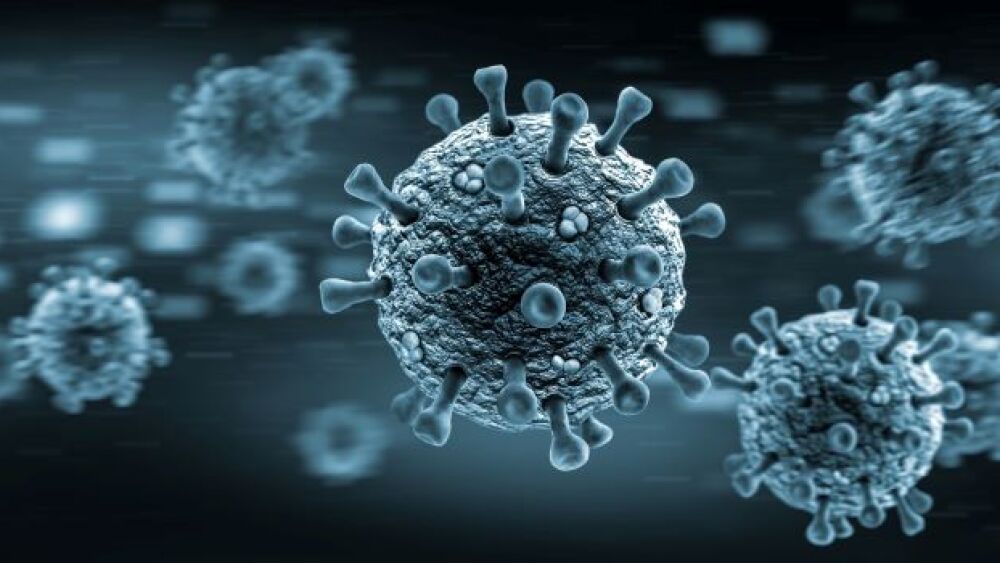COVID-19 probably can be eradicated globally, just like polio, according to research just published in BMJ Global Health. That assumes, however, that a high rate of vaccination occurs globally and that there is a quick response to emerging variants.
COVID-19 probably can be eradicated globally, just like polio, according to research just published in BMJ Global Health. That assumes, however, that a high rate of vaccination occurs globally and that there is a quick response to emerging variants.
Nick Wilson, professor of public health at the University of Otago Wellington, in Wellington, New Zealand, public health officials, and colleagues from Adapt Research Ltd. base their conclusion on multiple technical, sociopolitical and economic factors and on the successful eradication of polio and smallpox in the 20th century, as well as several other conditions either regionally or worldwide.
That flies in the face of a widespread idea, embraced in much of the world, that COVID-19 is becoming endemic – something society simply must live with.
Yet, based on experience with polio and smallpox, these New Zealand public health officials are hopeful. Some of the details for COVID-19 are not yet determined, they admitted, and these were factored into their analysis. They used a three-point scoring system for 17 variables, comparing polio and smallpox (both of which are considered eradicated), and COVID-19. The variables included availability of an effective vaccine, conference of lifetime immunity, reliable diagnoses, low transmissibility, absence of a non-human reservoir of disease, political and public concern, low costs for eradication, a positive benefit to cost ratio, and global cooperation.
Based on those factors, they scored the ability to eradicate smallpox at 2.7, COVID-19 at 1.6, and polio at 1.5. By “eradicated” they mean zero incidents, permanently, anywhere in the world. Consequently, they expect obliteration of COVID-19 to be more successful than for polio (for which two of the three serotypes of poliovirus have been eradicated globally), and but not as successful as for smallpox (which was declared globally eradicated in 1980).
“While our analysis is a preliminary effort with various subjective components, it does seem to put COVID-19 eradicability into the realm of being possible, especially in terms of technical feasibility,” they concluded.
COVID-19 has a somewhat different set of challenges than smallpox and polio, but also has some advantages.
The challenges, they wrote, are vaccine hesitancy and the steady emergency of more highly-transmissible variants that may evade immunity and possibly outrun global vaccination programs, making them play perpetual catch-up. “Nevertheless, there are, of course, limits to viral evolution, so we can expect the virus to eventually reach peak fitness, and new vaccines can be formulated,” they explained.
“Other challenges would be the high upfront costs (for vaccination and upgrading health systems), and achieving the necessary international cooperation in the face of ‘vaccine nationalism’ and government-mediated ‘antiscience aggression’,” they admit.
On the positive side, the entire world is working to vaccinate their populations to halt the spread of COVID-19. Countries have gone to extraordinary lengths to stop the spread, locking down populations, closing borders to unnecessary travel, enforcing social distancing and masking, and harming their economies in the process.
Statistica estimated a 2020 global drop in gross domestic product at 4.5%, directly related to COVID-19. That equals approximately $3.94 trillion of lost economic output. For 2021, Statistica estimated a drop of 5.6%, as variants emerge to slow the recovery and many countries still are struggling to vaccinate their populations. Demands for business and personal travel, oil, entertainment, and even textiles all slowed during the pandemic.
A combination of vaccination and public health measures is seen as the way out of the pandemic, toward eradication of the disease.
Vaccination has been shown effective in multiple diseases, including smallpox and polio, and it’s close to eradicating measles, mumps and rubella, they write. They suggest it can be equally effective against COVID-19.
For this pandemic, though, social measures also play an important role. The social constraints imposed during the pandemic, many of which are recurring now, do help control the spread of the virus. They were not a factor in either smallpox or polio, the authors pointed out. Non-vaccination methods are credited with the June 30th World Health Organization’s declaration that malaria is eradicated in China. Guinea worm infection in domestic dogs is close to being obliterated, too, without vaccination.
The presence of animal reservoirs of coronaviruses is not considered a viable constraint because interactions between those animals and people are relatively rare. An article last spring in Nature, however, raises some cautions. While cows, ducks, pigs, and even many bats are poor hosts for coronaviruses, ferrets, cats, white-tailed deer and other may harbor the disease and pass in on.
Transmission, the author notes, isn’t necessarily easy, though. Of 650 COVID-19 outbreaks in animals recorded by the World Organisation for Animal Health (OIE) as of June 30, 2021, 352 of them were in mink; 102 were in cats; 86 were in dogs. One was in an otter and another one in a ferret. The remaining numbers were made up of large cats (lions, tigers, pumas and snow leopards) and one gorilla. The animals may not show signs of the disease but tended to be tested because of close proximity to people who developed COVID-19.
Eliminating COVID-19 may take many years, but it is possible, they maintain. Wilson and his colleagues are careful to note that this study is preliminary and that more extensive research is required regarding how existing measure may be used and whether the benefit is worth the investment.






